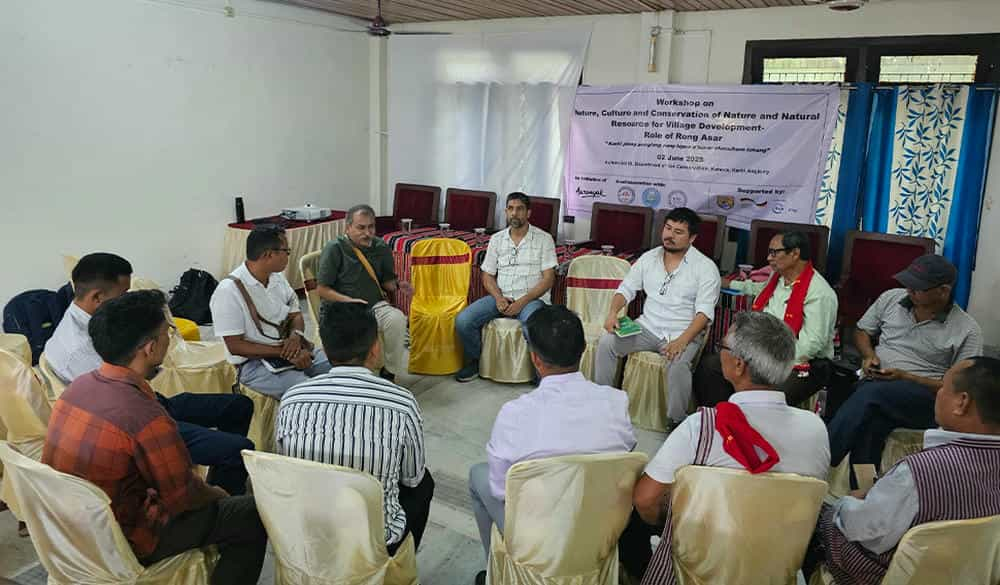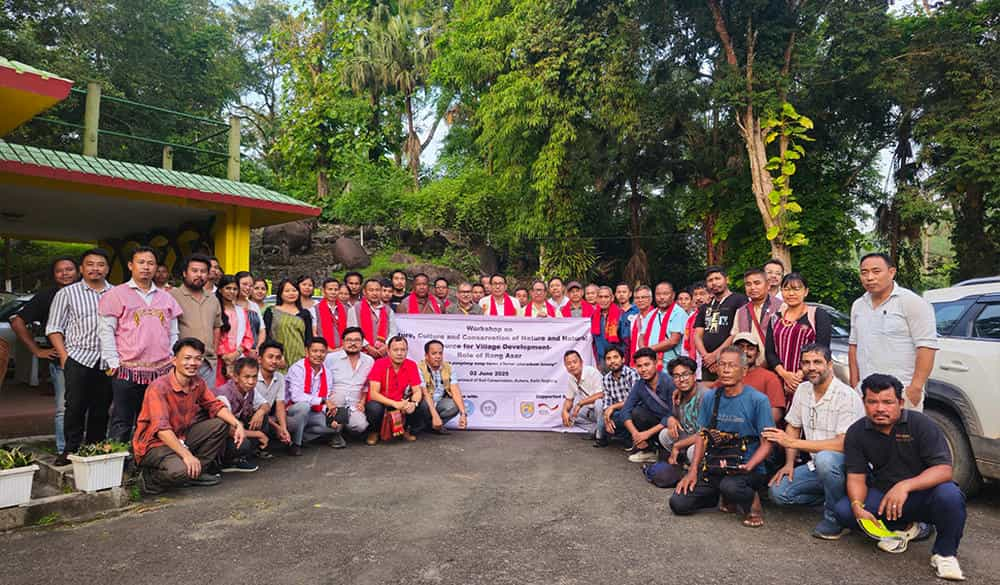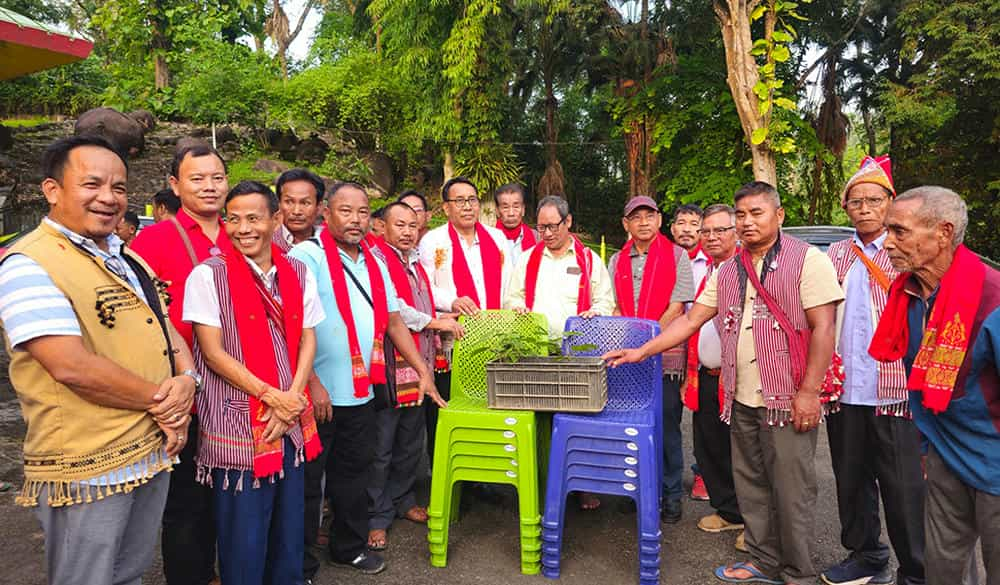Karbi headmen rise for nature: Kohora & Diring leaders unite to link culture with conservation

In a powerful show of community leadership, 80 Karbi representatives—including Rong Asar (village headmen), youth leaders, women, and cultural advocates—gathered at Kohora Soil Conservation IB on June 2 for a high-impact workshop on weaving traditional knowledge into modern conservation efforts across the Kaziranga-Karbi Anglong landscape.
Organised by Aaranyak in collaboration with Karbi Rong Asar Amei (KRAA), Karbi Cultural Society (KCS), and the Department of Arts & Culture, KAAC, the workshop titled “Nature, Culture, and Conservation of Natural Resources for Sustainable Village Development – Role of Rong Asar” brought sharp focus to local ecological threats and solutions rooted in Karbi traditions.
The workshop emphasized creating village-level conservation awareness programs across 10 villages in the Kohora and Diring river basins. Discussions spotlighted the central role of Rong Asar and community elders in driving these grassroots initiatives.
Participants unanimously agreed to move forward with the awareness drives and coordinate with the Kohora Area Protection Committee to finalize schedules and locations.
Dilip Kathar of KAAC’s Arts & Culture Department connected ancient Karbi ecological wisdom with current environmental realities. He spoke of bio-indicators—natural cues used for weather forecasting based on local flora, bird nesting patterns, and agricultural timing—and warned that environmental imbalance would destabilize cultural systems.

Humsing Bey, President of KCS, raised red flags over unsustainable harvesting that has led to a crisis of natural resources. Dhormo Teron, President of KRAA, highlighted the loss of traditional knowledge as the elder population declines, leading to a cultural disconnect among younger generations.
Devinson Terrang, Chairman of the Dolamara Biodiversity Management Committee, called for legal safeguards for traditional knowledge using the Biodiversity Act and pushed for holistic stewardship of all life forms. Chandra Kanta Terang, renowned Karbi singer and cultural researcher, underscored the urgency of community-led awareness campaigns.

Aaranyak’s Dr. Firoz Ahmed explained the grievance redressal mechanisms available to villagers and the institutional role of Rong Asar in development planning. Sarlongjon Teron of Aaranyak also introduced the organization’s larger initiatives in Northeast India, emphasizing empowerment, conservation-linked livelihoods, and sustainability.
With strong backing from community institutions and knowledge holders, the Karbi villages are set to roll out a campaign that fuses cultural identity with environmental responsibility—a grassroots model for conservation that others might soon follow.

Leave a Reply